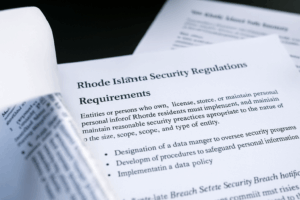With the rapid advancement of technology, nearly every aspect of our lives has revolutionized. From communication and commerce to healthcare and education, technology has brought about unprecedented benefits and efficiencies. Businesses can now reach global markets with ease, individuals can connect instantaneously across continents, and essential services can be delivered more efficiently than ever before. These innovations have streamlined operations, enhanced productivity, and opened up new avenues for growth and development across various sectors worldwide.
However, amid these remarkable advancements lies a persistent and growing threat: cyber attacks. These malicious activities exploit vulnerabilities in our interconnected digital infrastructure, posing significant risks to individuals, businesses, and society at large. Cyber attacks encompass a wide range of tactics, including data breaches, ransomware, phishing scams, and denial-of-service attacks, each with the potential to cause substantial harm.
For individuals, cyber attacks can result in the theft of personal information such as financial data, health records, and identity details. The repercussions extend beyond financial losses to include emotional distress and a sense of violation when privacy is compromised. Businesses face even greater risks, with cyber attacks threatening not only their financial stability through operational disruptions and loss of intellectual property but also their reputation and customer trust. A single successful cyber attack can tarnish years of hard-earned goodwill and lead to legal liabilities, regulatory fines, and compliance issues.
Moreover, the societal impact of cyber attacks is profound. As our reliance on digital technologies grows, so too does our vulnerability to cyber threats that target critical infrastructure, including energy grids, transportation systems, and government services. Disruptions to these essential services can have far-reaching consequences, affecting public safety, economic stability, and national security. The erosion of public trust in digital systems and institutions can undermine social cohesion and exacerbate existing inequalities, particularly among marginalized communities with limited access to resources and support.
This article discusses the multifaceted repercussions of cyber attacks, emphasizing their profound implications on cybersecurity practices and broader societal dynamics. By understanding these challenges, we can better appreciate the urgency of implementing robust cybersecurity measures and fostering a culture of resilience and vigilance in our increasingly interconnected world.
What Happens During a Cyber Attack?
A cyber attack occurs when malicious actors exploit vulnerabilities in computer systems or networks to gain unauthorized access, steal data, disrupt operations, or cause damage. These attacks can take various forms, including malware infections, phishing scams, denial-of-service (DoS) attacks, and ransomware incidents.
When a cyber attack strikes, its effects can be devastating. For businesses, it often results in financial losses due to operational disruptions, downtime, and the costs associated with remediation efforts. The theft of sensitive information such as customer data or intellectual property can lead to reputational damage and legal liabilities.
Individuals affected by cyber attacks may experience identity theft, financial fraud, or invasion of privacy. Moreover, the psychological impact of having personal information compromised can be significant, leading to feelings of vulnerability and distrust in digital systems.
Explore our Managed Service Offerings
Worcester’s Top Managed Service Provider
Impact of Cyber Security on Society
The role of cybersecurity in modern society cannot be overstated. As our reliance on digital technologies grows, so does the need to protect these systems from malicious actors. Effective cybersecurity measures not only safeguard sensitive data but also ensure the continuity of essential services such as healthcare, transportation, and financial transactions.
In contrast, inadequate cybersecurity measures can have far-reaching consequences. Critical infrastructure, including power grids and communication networks, may become vulnerable to cyber attacks, potentially leading to widespread disruptions and economic instability. Moreover, attacks targeting governmental institutions can undermine public trust in governance and democratic processes.
Consequences of Cyber Attacks
The consequences of cyber attacks extend beyond immediate financial and operational impacts. They can disrupt supply chains, leading to delays in product delivery and increased costs for businesses. Moreover, industries such as healthcare and education, which rely heavily on digital systems, may face challenges in delivering essential services to the public during and after an attack.
From a societal perspective, cyber attacks can exacerbate existing inequalities. Vulnerable populations may be disproportionately affected, as they often lack access to resources needed to mitigate the effects of such attacks. Furthermore, the global nature of cyber threats means that countries with weaker cybersecurity frameworks may become targets for state-sponsored attacks or cyber warfare.
Case Studies: Real-World Examples
Several high-profile cyber attacks in recent years underscore the seriousness of the issue. The 2017 WannaCry ransomware attack, for instance, targeted computers running outdated versions of Microsoft Windows, affecting hundreds of thousands of systems worldwide. The attack disrupted healthcare services, government agencies, and businesses, highlighting the vulnerability of interconnected digital networks.
In another example, the SolarWinds supply chain attack of 2020 compromised the networks of numerous government agencies and private companies, including Microsoft and FireEye. The sophisticated nature of the attack, attributed to a state-sponsored actor, underscored the importance of robust cybersecurity measures and supply chain integrity.
Mitigating Cybersecurity Risks
Addressing cybersecurity risks requires a multi-faceted approach involving technology, policy, and education. Organizations must implement robust cybersecurity frameworks that include regular updates, patches, and vulnerability assessments. Employee training and awareness programs can help prevent phishing attacks and ensure that personnel are vigilant against potential threats.
From a policy perspective, governments play a crucial role in establishing cybersecurity standards, promoting information sharing among stakeholders, and holding malicious actors accountable. International cooperation is also essential in combating cyber threats, as attacks often originate from jurisdictions beyond national borders.
Discover our IT Solutions for Your Industry
Worcester’s Top Managed Service Provider
How Triton Technologies Can Help
Triton Technologies specializes in Managed Services, IT Support Services, Compliance Management Solutions, and Industry-specific Solutions. We offer cutting-edge cybersecurity solutions designed to mitigate cyber threats with proactive threat detection, rapid incident response, and continuous monitoring. Whether you’re a small business or large enterprise, our tailored services protect your data and assets. Leveraging advanced technologies and best practices, we enhance cybersecurity resilience and ensure regulatory compliance. Trust us to safeguard against financial losses, operational disruptions, and breaches of privacy, creating a safer digital future.
By leveraging advanced technologies and industry best practices, Triton Technologies helps organizations enhance their cybersecurity resilience and maintain compliance with regulatory requirements. Our team of cybersecurity experts is dedicated to staying ahead of emerging threats and evolving our strategies to provide you with the highest level of protection.
The impacts of cyber attacks are wide-ranging and profound, affecting individuals, businesses, and society at large. From financial losses and operational disruptions to breaches of privacy and trust, the consequences of inadequate cybersecurity measures can be severe. By understanding these impacts and taking proactive steps to enhance cybersecurity resilience, we can mitigate the risks posed by cyber threats and build a safer digital environment for future generations.



